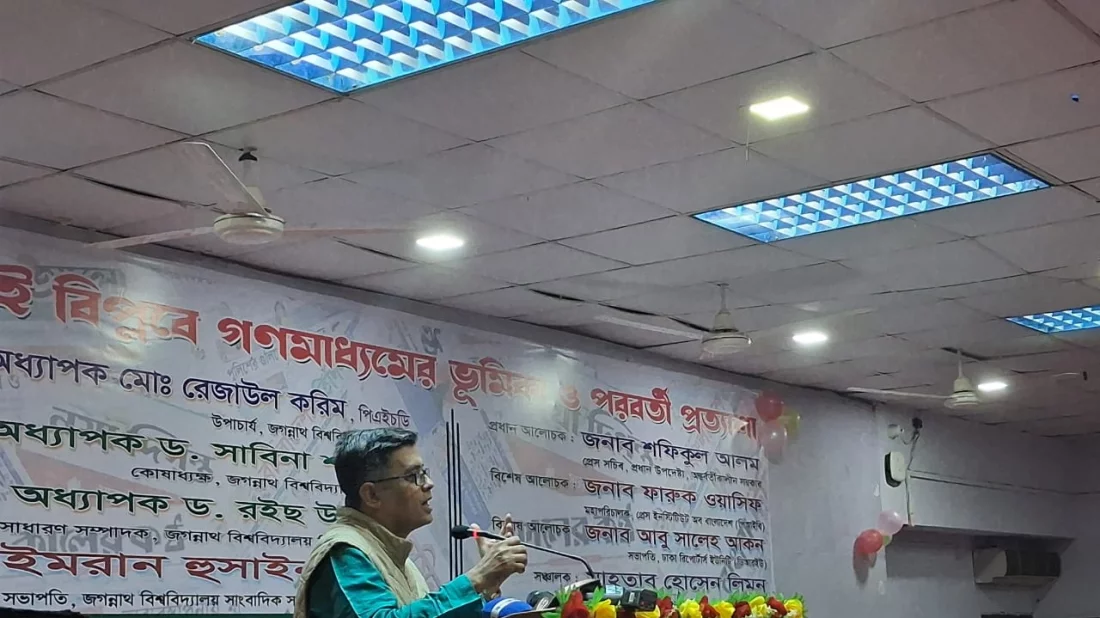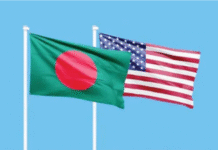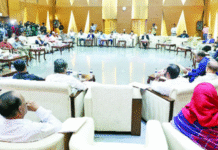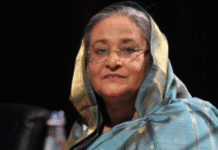Chief Adviser’s Press Secretary Shafiqul Alam has said that if fascist forces had succeeded, they would have imprisoned 200,000 people, silencing dissent, stripping political rights, and justifying mass oppression under distorted narratives of security.
He said: “Under the Awami League regime, one of the biggest lootings in world history took place in Bangladesh.”
He accused Sheikh Hasina of creating a system of corruption, focusing on securing projects for major companies.
He added that those who laundered money abroad during that time are now using that money to spread propaganda, aiming to establish the narrative that there is currently a rise of fundamentalist forces rather than a mass uprising.
He warned that defeated forces are attempting to portray people as militants again.”
Shafiqul Alam was speaking on Saturday at a seminar titled “The Role of Media in the July Revolution and Future Expectations,” organized by the Jagannath University Journalists’ Association (Juja), where he was the keynote speaker.
Recalling the role of journalists during the July Movement, Shafiqul Alam said: “The role journalists played during the July Movement, defying government intimidation, was historic. Media platforms, including TV, online, print, and even citizen journalism, contributed to the movement. On the contrary, some groups created a narrative labeling the protesters as attackers of BTV, perpetrators of violence against metro rail infrastructure, and terrorists. They incited violence against protesters, portraying them as enemies of the nation deserving of death. This is the language of the media. Whether someone is a journalist or not, they need to understand this language and its implications. The media uses its language to dictate who is a terrorist or a miscreant.”
Shafiqul Alam further said: “During the July Revolution, many media outlets presented protesters as ‘enemies of the nation.’ By doing so, they conveyed to the ruling authorities that these protesters needed to be suppressed. As a result of the movement, 2,000 people lost their lives. If the fascist forces had won, two hundred thousands people would have been imprisoned, their political rights taken away. The narrative would then have been that some ‘miscreants’ had caused chaos across the country.”
He continued: “July was our finest moment. Such a time had never come before. I don’t know how much our journalists witnessed during the 1971 Liberation War. Back then, a million people became refugees, leading lives of hardship, but there is very little writing documenting their suffering. We didn’t write stories about them.”
The Press Secretary stressed that a journalist’s job is to question those in power.
He said journalists must be allowed to do their job without interference. Regarding reports on organizations like Chhatra Dal or Shibir, he noted that the first step should be verifying whether the report is true. If it is true, then it must be accepted as such.
Emphasizing the need for more writing, he said: “We have very little habit of writing, and this needs to change. Document your contributions, as every moment recorded will illuminate us in new ways. However, university journalists have continued their writing, sharing their experiences in newspapers and on social media. The video of Abu Sayed’s martyrdom was also an example of citizen journalism. We need to learn about those who contributed to transforming the movement into a mass uprising. Similarly, we must also understand those who attacked us and supported the authoritarian government. Abu Sayed’s story of martyrdom must be remembered.”
He further said: “After coming to power in 2009, the Awami League created the first narrative of ‘anti-liberation forces.’ Throughout this period, the Awami League’s narrative has been dominant. The movements were led by Chhatra Dal, Shibir, and left-wing groups, but they were presented globally as terrorists or Taliban, justifying their killing.”
In a special address at the event, PIB Director General Faruk Wasif said: “During the nine-month-long war in 1971, we lost 13 journalists. However, in just the last few days of the July Revolution, we lost five journalists. This shows that if the collaborators of fascists had been given more time, we might have faced another ‘Black Night’ like March 25, targeting teachers, journalists, and intellectuals.”
Cautioning about the Minus Theory, Faruk Wasif said: “The political parties in 2006–07 did not understand the emergency period. It was part of the Minus Two Theory. Today, if any movement participants attempt to minus someone, they will face a similar outcome.”
The seminar was chaired by Juja President Imran Hossain and featured Professor Dr Md Rezaul Karim, Vice-Chancellor of Jagannath University, as the chief guest.
Dr Rezaul Karim said: “The history of authoritarianism is so extensive that it would take hours to describe. During authoritarian regimes, when a student was beaten to death, it was declared that someone from Chhatra Dal or Shibir had died, and no one would stand beside them.”
Juja General Secretary Mahatab Hossain Limon emphasized the need for proper training for campus journalists to combat the decline in journalism standards over the past 15 years. He suggested forming a separate wage board for campus journalists to establish a structured salary system.
The event was moderated by Juja General Secretary Mahatab Hossain Limon and featured special addresses from Professor Dr. Sabina Sharmin, Treasurer of the university, and Professor Rois Uddin, General Secretary of the Teachers’ Association.
Additional speeches were delivered by Mohammad Asadul Islam, President of Jagannath University’s Chhatra Shibir unit; Sajibur Rahman, Convener of Justice for July, Jagannath University; and Noor Nabi, Central Coordinator of the Anti-Discrimination Student Movement and a student of Jagannath University.
The seminar’s keynote paper was presented by Juja Vice-President Asadul Islam.
Leaders and activists from various political and social organizations, university journalists, and faculty members attended the event.
dhaka tribune










